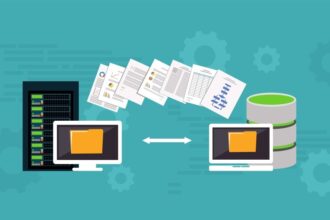Big data sparks a lot of fear around security, privacy and exactly what intense customization means or looks like for and on the web. And it sparks fear for good reason: because all most people hear about big data is about its current vulnerabilities.
Big data sparks a lot of fear around security, privacy and exactly what intense customization means or looks like for and on the web. And it sparks fear for good reason: because all most people hear about big data is about its current vulnerabilities.
Yes, big data lives, most often, in the cloud, and is processed via cluster batching, then visualized via algorithms and set up so that you or a company might be able to query it. That process is true, it works, it is and will continue to change the world as we know it. But, for the average person living and working outside the tech industry — that sentence may as well be gibberish. Instead, what resonates with those outside the tech industry is the NSA, the Target breach, Heartbleed, the headlines on headlines of information about how your information may or may not be safe in a cloud, in a server, behind an encrypted password.
But big data is so much more than a breach — and every individual breach is necessary on the path to figuring out how to secure what will be our most valuable asset.
Indeed, big data is difficult to fully understand, and its implications are even farther reaching than the concept of big data itself. See, what big data is essentially doing, at the most basic point, is creating a digital shadow, not merely a footprint. Each individual is being digitally cloned via their online actions, what they like on Facebook, what they post on Twitter, where they shop, and soon, with the Internet of Things, how they drive, how often they brush their teeth and so on.
Big data is the representation of who we are when we are digitally connected, meaning that it is so much more than a simple data point or a collection of data points that make up the interests and habits of a single person. It is the digital DNA of each person — and yes, albeit unfortunately, it is currently open to misuse.
The commercial profit associated with the buying and selling of digital identity data is high. It involves and significantly improves customization, customer relations, hiring, medical care, education, journalism and so much more. It sells tickets, it increases ad revenue, it allows your audience a holistic brand experience, from the brand itself to the sponsors they already like, follow and relate with online.
But, that must be balanced with the greater good, and this Open Letter to the web by Firefox, featuring the future of our species asking, perhaps begging, us to ensure that the technology is secure, that the collection processes are transparent and fair, that the web doesn’t fall down the rabbit hole that has tricked so many others, previously great things — you know, the one where money and greed rule rather than morality and doing what is right — is perfection.
The Web We Want video embodies everything big data platforms should believe in, and should be the reason the platforms were created to begin with. It’s about believing in the rights of the individual and consistently working toward ensuring security, privacy and transparent collection methods that allow users to opt-out if they so choose. Here, we research, report and write daily on the big data industry, translating the industry lingo into understandable tidbits, advice and truly inspiring points about what is happening, what it means and why its a very good thing.
On this point, we stand with Mozilla. We join their pledge for an open, free and secure web on which big data is not a medium for discrimination, fear, retaliation or misuse. Instead, the world we see uses big data for the common good, for convenience, for a better tomorrow — and we will fight, luchador style, to make sure the future we see is the one we get to live.






